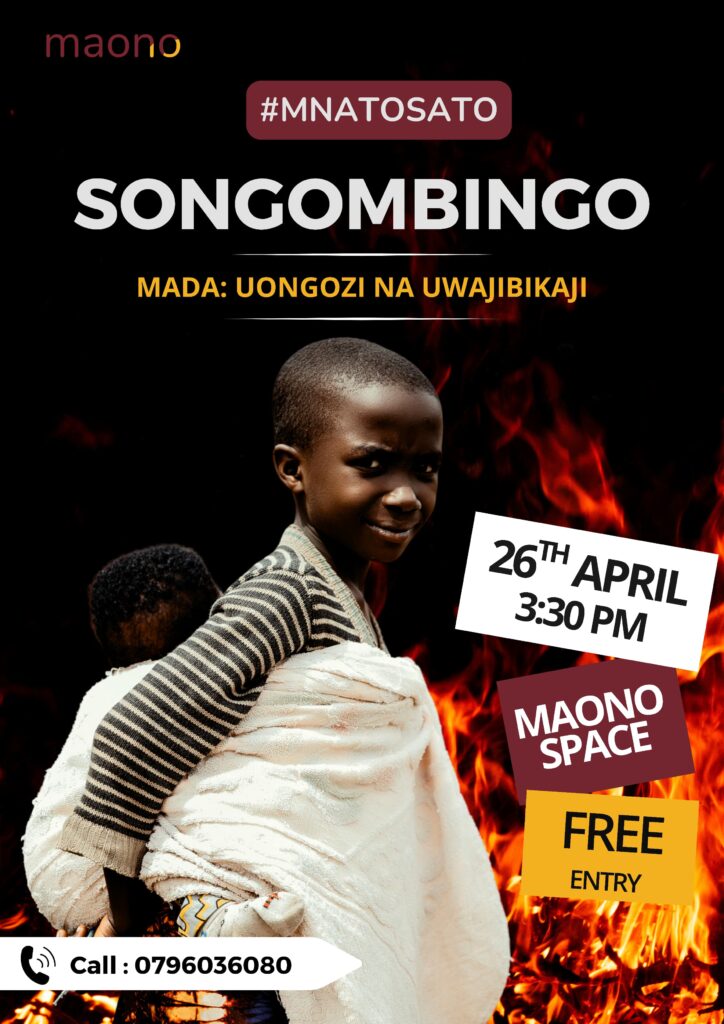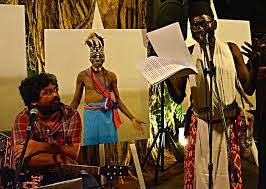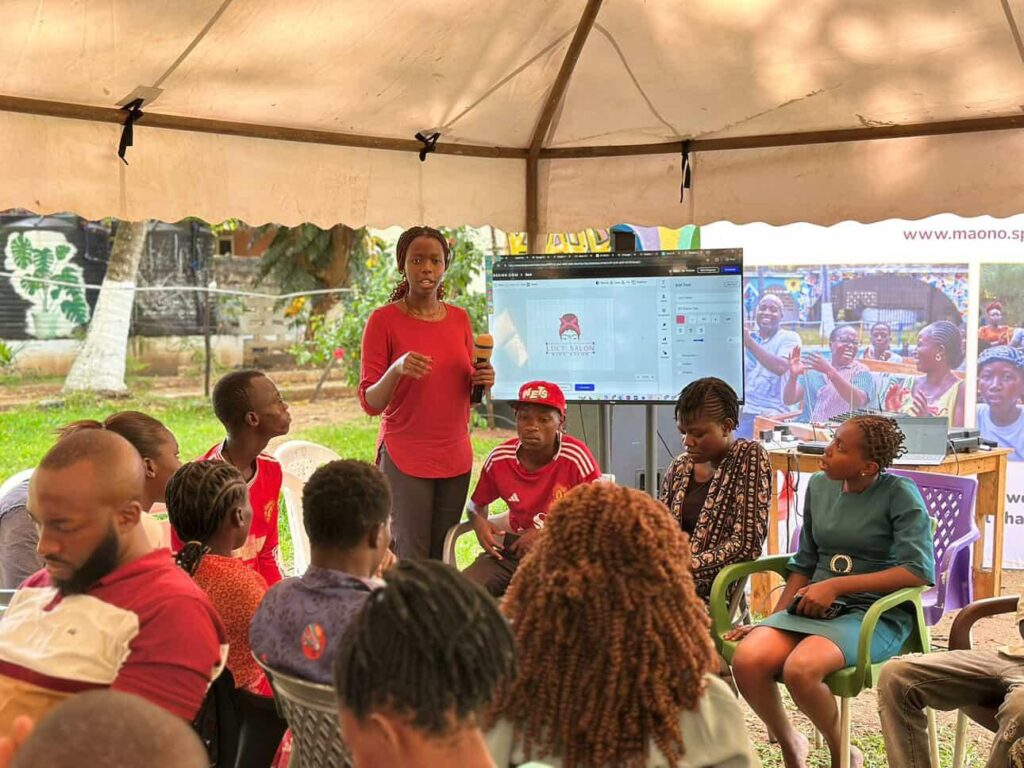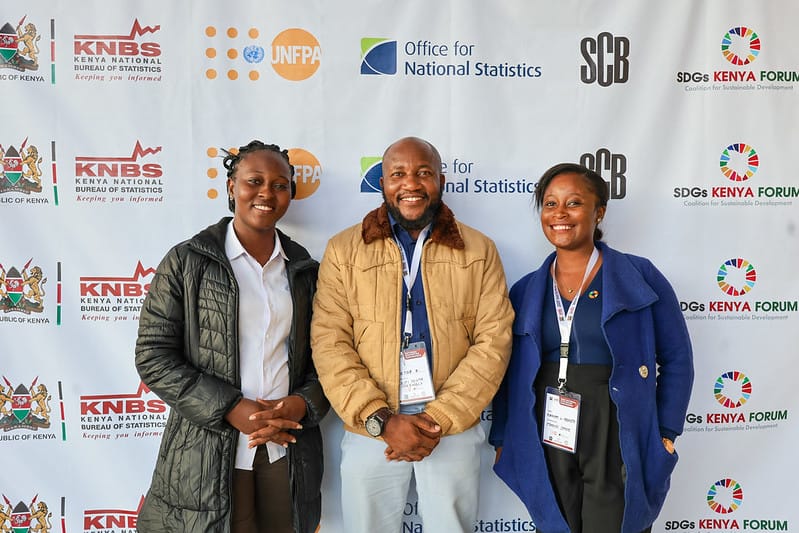Every last Saturday of the month, something magical happens at Maono.
As the sun begins to set over Malindi, a quiet energy gathers. A youth with a guitar slung across his back hums softly to himself. A girl adjusts the fabric of her dance skirt, feet already tapping to an imagined beat. A poet paces near the edge of the stage, paper in hand, heart in mouth. Music begins to float into the air. Laughter bubbles across the compound. Voices call out names. Chairs are dragged into place. It feels like home.
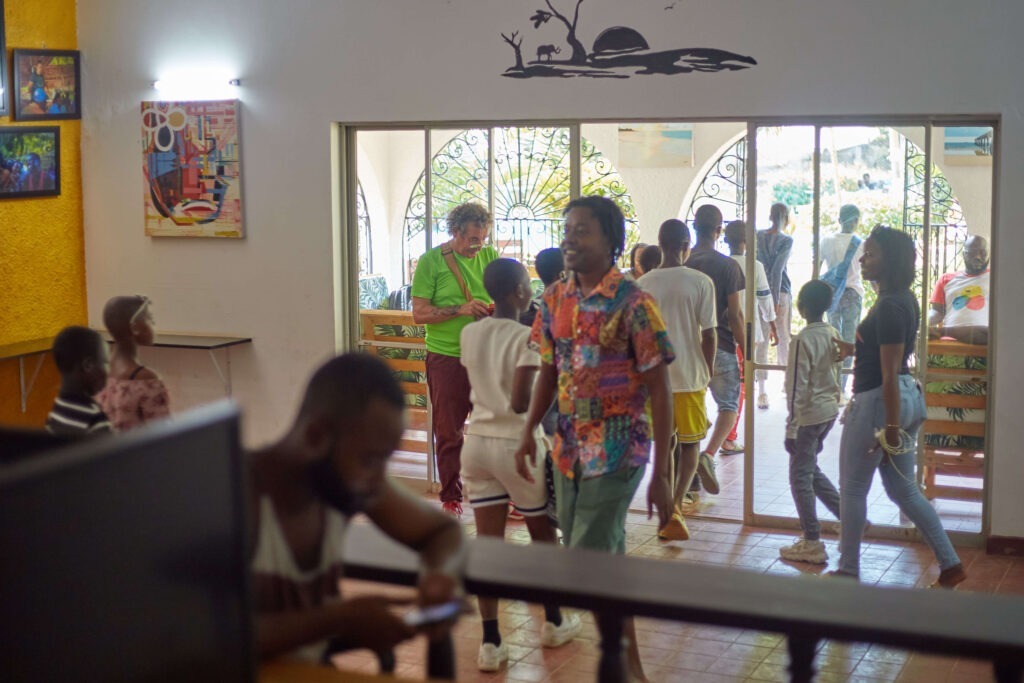
This is Mnato Sato.
It didn’t begin as an event. It started with a question. In one of Maono’s regular changemakers’ meetings, a familiar group sat in discussion: Emmanuel Omondi, Jeff Kadhengi, Zeinab, our community liaison, Chris Kariuki, our space manager and others. The room was filled with people doing impactful work in various areas. But there were many who didn’t quite fit into a theme. They weren’t running data projects or organising health drives. Their work lived in performance, in voice, body, and rhythm. They were dancers. Poets. Actors. Musicians. And while their work was rooted in behaviour change and storytelling, there wasn’t a dedicated space for it. Someone asked, “Where can they perform? Where can they go other than the occasional community outreach?” There was no good answer.
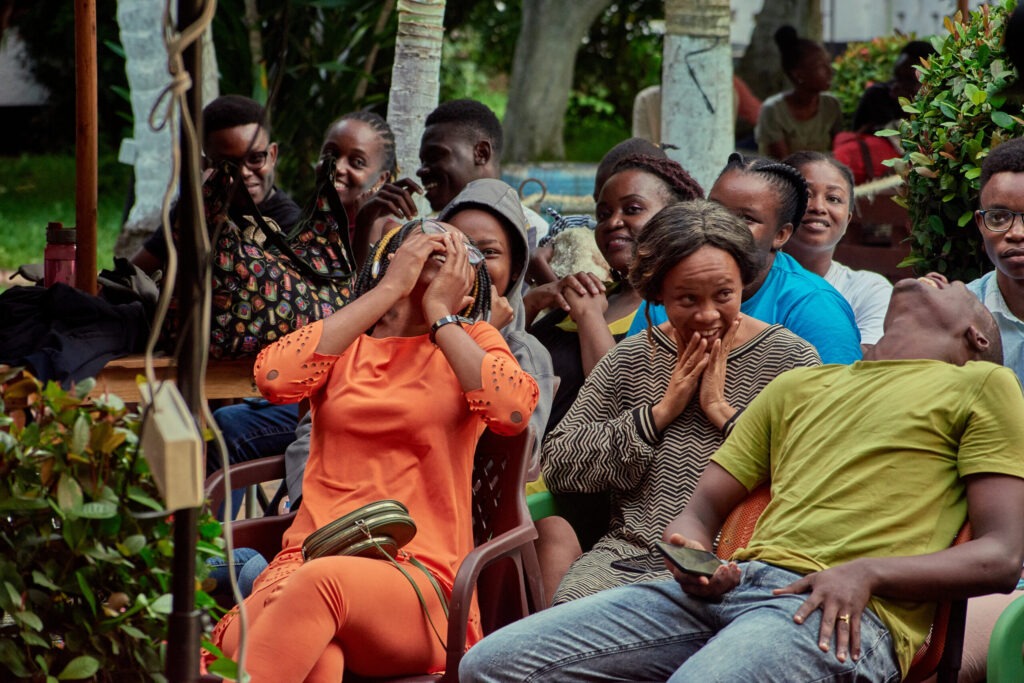
Community outreaches were infrequent, often led by organisations with predetermined goals. The artists were included, but they weren’t in charge. The stage wasn’t theirs. The alternative venue in Malindi, Cleopatra Theatre, was too expensive to hire. And so, many creatives fell back into the shadows. Some picked up casual jobs. Some quit performing entirely. The perception lingered: art was a hobby, not something to take seriously.
So together, we decided to create something.
They agreed on Saturday afternoons—open, convenient, unclaimed time in the community schedule. Then came the name. Al Kags, the founder of the Open Institute, suggested it should be rooted in our local realities. Kelly from Shiners Arts Youth group threw out “Kunata Saturday.” It evolved into “Kunata Sato,” but it didn’t feel quite right. Eventually, the team settled on “Mnato Sato,” a playful, familiar-sounding phrase that combined the idea of pulling people together (mnato) with the Swahili slang for Saturday (sato). It sounded like something people would say naturally, and it stuck.
The first Mnato Sato was full of excitement and uncertainty. There were no tickets. It was free, spread through word of mouth and WhatsApp messages. Artists came early, unsure of the lineup but excited to be seen. CBO leaders came with their teams. Families arrived with kids. The stage wasn’t polished, and the schedule ran into confusion, but no one left. There were fears. Would the performers show up? Would they freeze? Would the audience care? Would people from different organisations even work together? There had always been unspoken competition among CBOs, more parallel than collaborative. Some artists hadn’t performed in years. Some had never been on stage at all. But they showed up. They performed. And people clapped.
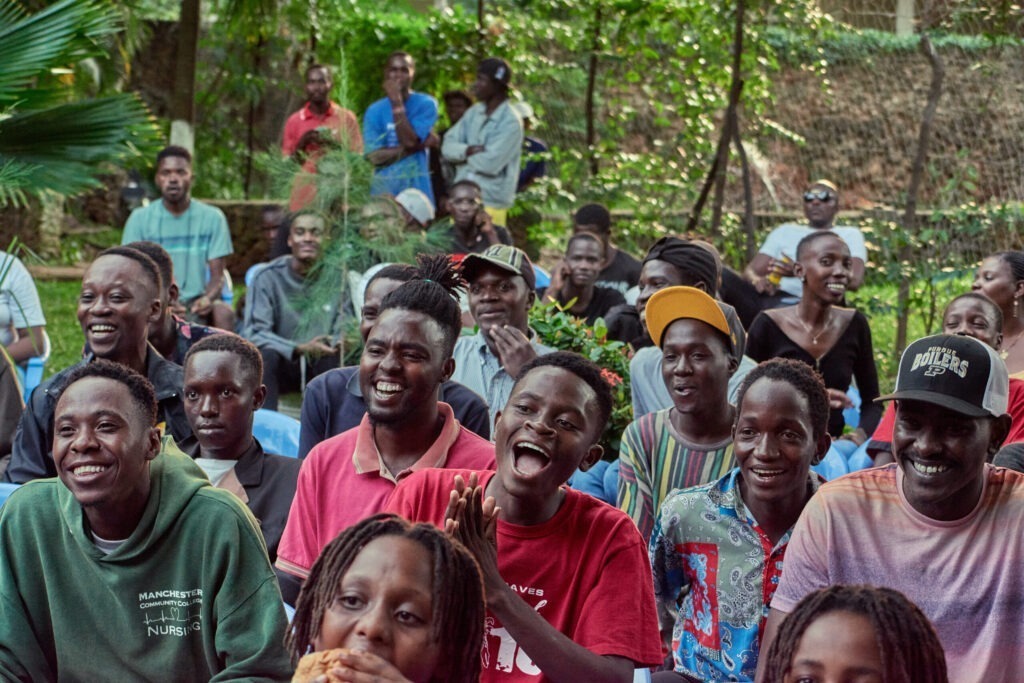
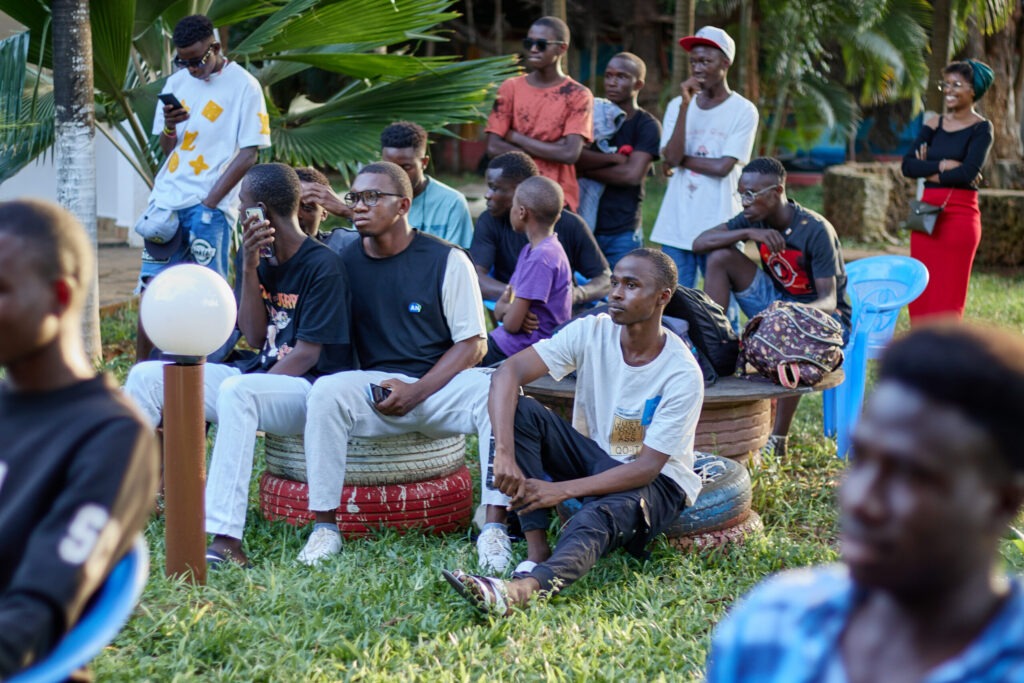
From that first show, Mnato Sato became a fixture. It has only missed 3 months. Whether it rained, whether the numbers dropped, the stage was always set. The smallest crowd the event ever had was 56 people, when the rain fell just as the show began, and most of the audience, who usually came by motorbike, couldn’t make it through the rain. The largest crowd has reached 580—an overwhelming show of support that filled the compound to the brim. No matter the number, the show has always gone on.
The structure is simple and inclusive. Anyone can register to perform as long as their content aligns with community values—inafuata maadili. There are no auditions. No gatekeeping. Performers range from children delivering school plays to first-time rappers to seasoned spoken word artists. The performances are diverse but always grounded in honesty. And at the end of every show, the artists and audience gather on stage, sweating, smiling, satisfied, and together they shout: “Mnato Ilinata!” It’s not just a chant but a declaration that something meaningful happened.
Mnato Sato attracted support. Thellesi Trust partnered with Maono through their Kibaraza program, which aims to uplift creatives and give them meaningful spaces to develop and share their work. With their support, Mnato Sato started and grew stronger. They brought structure, strategy, and networks. Through them, nationally known artists visited the space. Abel Mutua, one of Kenya’s most respected storytellers, came to encourage, to speak and to listen to our community of creatives His presence alone reminded the artists that their work had value. Yusuf Dalu, a celebrated scriptwriter, came and directed a play titled Vuli on governance, through a partnership with Kwacha Afrika. It was staged at Maono, written and performed by local talent. The audience was full. The feedback was remarkable
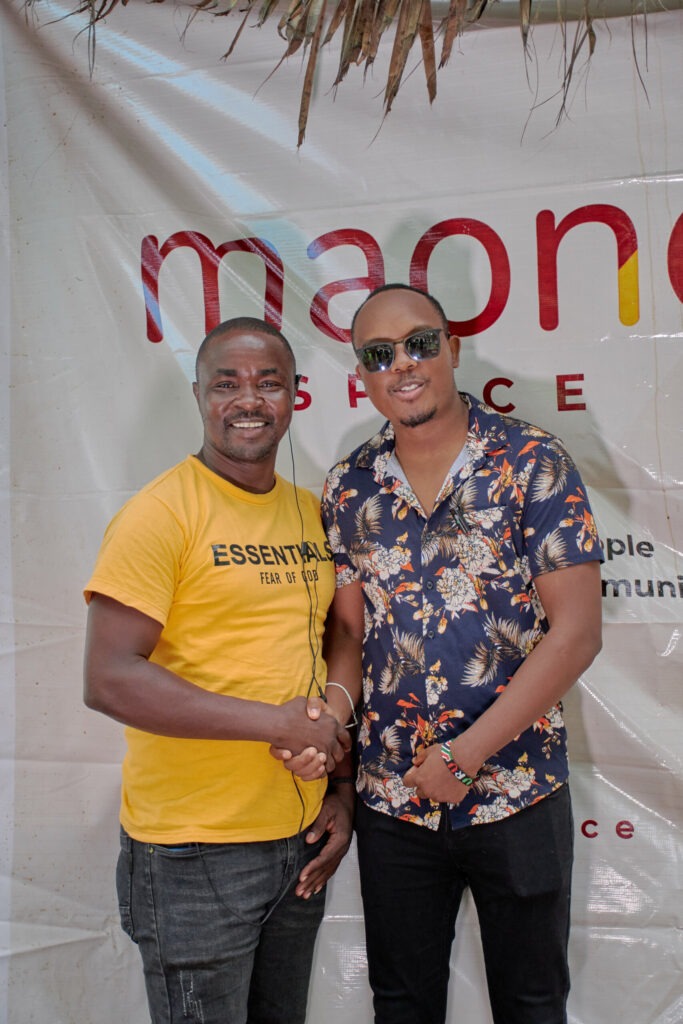
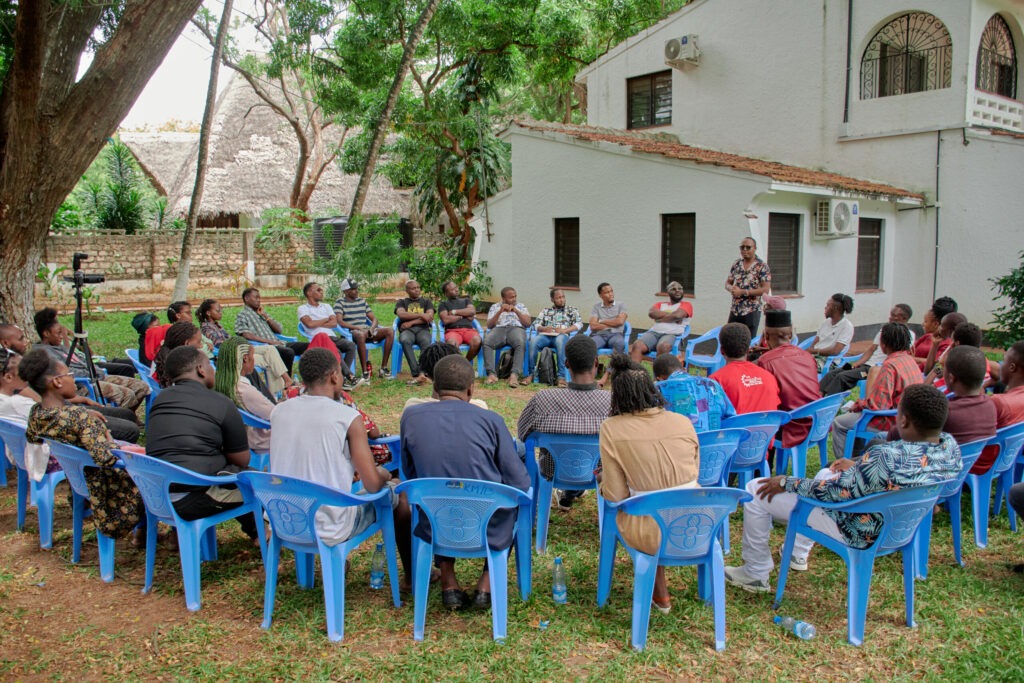
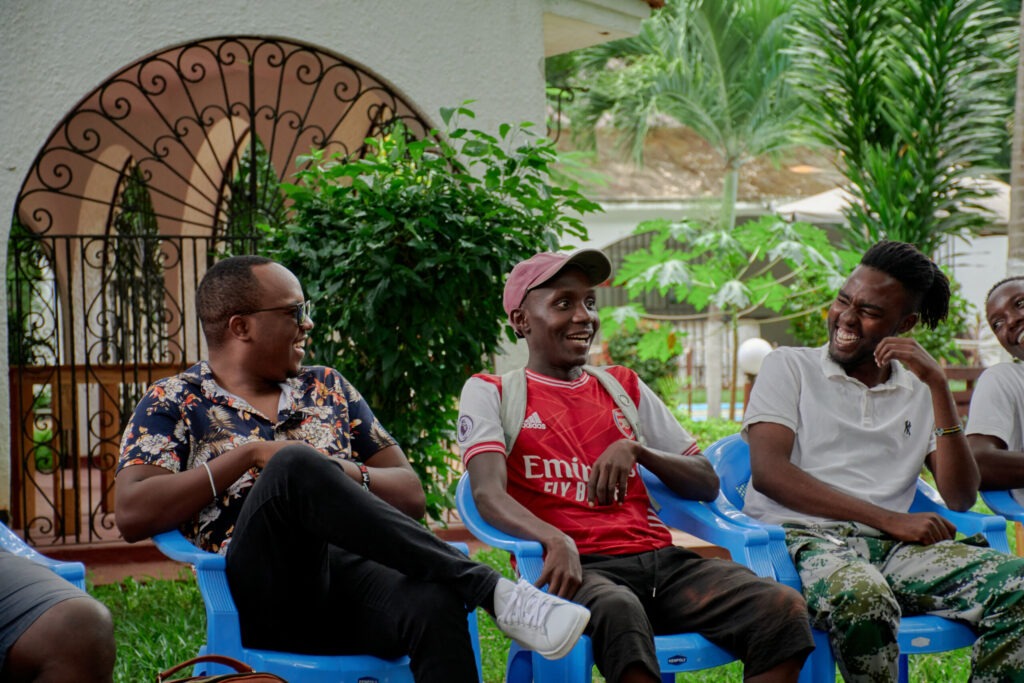
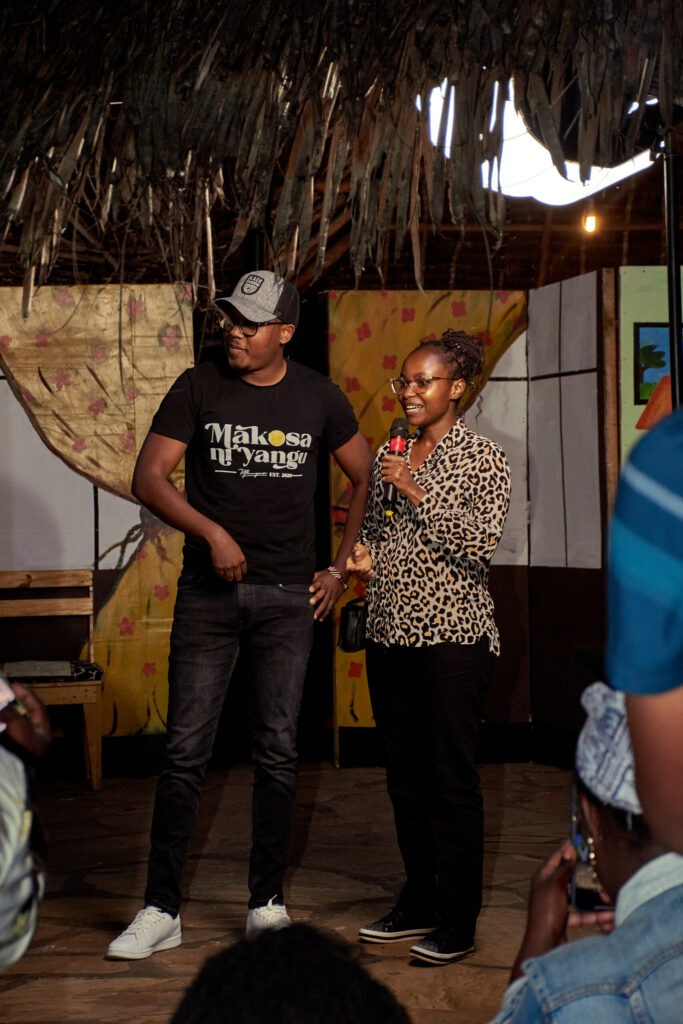
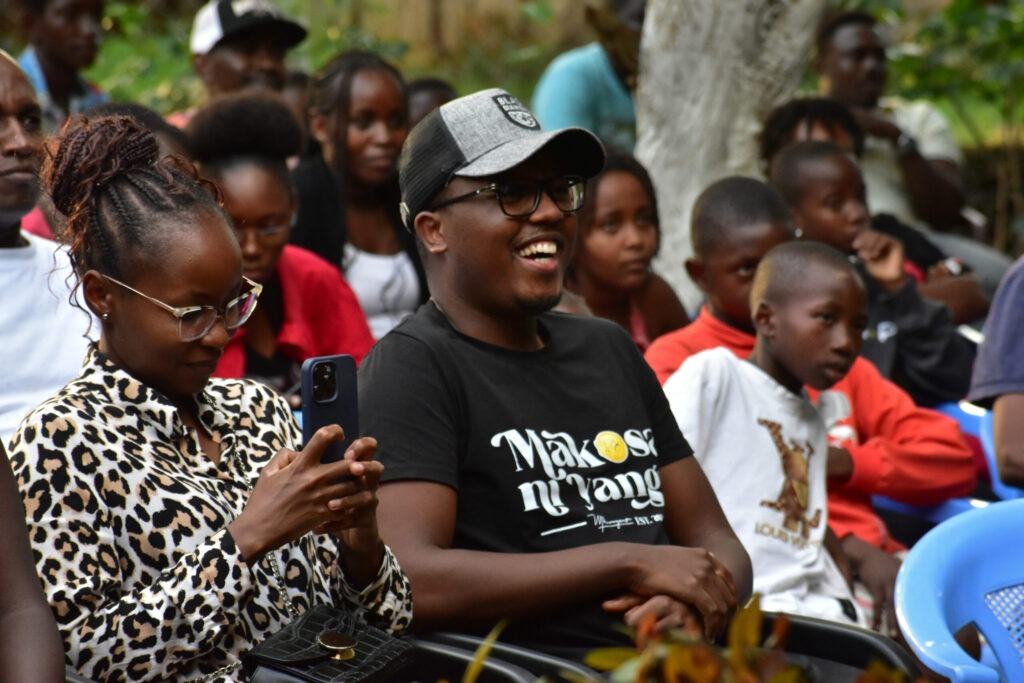
The ripples of Mnato Sato are everywhere now. Baraka, a founder of Sparks dancers, and Barrack Mustafa, a.k.a. Icon, a musician and thespian, after consistently performing at Mnato Sato for over a year, were inspired by the spirit of the stage and created Malindi Got Talent, a fully ticketed community talent show. The first show was held at Maono Space in August 2024, and it filled up. The second came not long after, in December. But this time, it involved also the thespians and was hosted at Cleopatra Hall. It was a day full of talent show, which wrapped up with a powerful play, The Gates. From passion to profit, they proved that creativity can be a livelihood. That talent can build community and earn respect.
Thespians who once only performed at Mnato Sato are now being hired to deliver short skits at community dialogues hosted by changemakers and CSOs. Their work educates and entertains. It stirs laughter. It invites reflection. And now, it earns them income.
One of Mnato Sato’s longest-standing performers is Emmas the Poet. From the beginning, Emmas has been consistent. He has taken the stage month after month, using it as a platform to sharpen his message and expand his reach. His poetry tackles urgent topics like climate change, gender-based violence, and many other social issues. Through his work, Emmas has received recognition and nominations beyond Malindi, beyond Kenya, even. What began on a small stage has grown into a presence that crosses borders.
In just over two years, Mnato Sato has featured over 35 thespians, four dance crews with at least 20 members each, 35 musicians and rappers, 10 poets, five comedians, and eight MCs, giving stage to approximately 200 local and upcoming creatives. It has become a place where people who once watched from the back now walk to the front and ask, “Can I perform next month?”
Our vision for Mnato Sato isn’t finished. There are hopes for a dedicated theatre space, with proper sound, lights, and decor. A vision for countywide touring plays, shows that bring social messages to the heart of communities across Kilifi. There are plans for a Creative Summit, where local artists gather each year to reflect, learn, and grow. But for now, Mnato Sato remains exactly what it set out to be: a place for young people to perform, to be seen, to be heard.
It happens every last Saturday of the month. It’s open. It’s alive. And this month, It will happen on the 26th.
